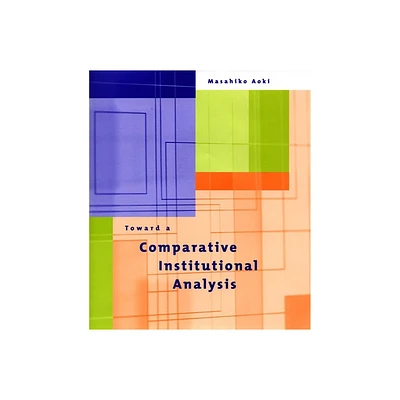Home
Toward a Comparative Institutional Analysis
Loading Inventory...
Barnes and Noble
Toward a Comparative Institutional Analysis
Current price: $75.00


Barnes and Noble
Toward a Comparative Institutional Analysis
Current price: $75.00
Loading Inventory...
Size: OS
*Product Information may vary - to confirm product availability, pricing, and additional information please contact Barnes and Noble
A conceptual and analytical framework for understanding economic institutions and institutional change.
Markets are one of the most salient institutions produced by humans, and economists have traditionally analyzed the workings of the market mechanism. Recently, however, economists and others have begun to appreciate the many institution-related events and phenomena that have a significant impact on economic performance. Examples include the demise of the communist states, the emergence of Silicon Valley and e-commerce, the European currency unification, and the East Asian financial crises.
In this book Masahiko Aoki uses modern game theory to develop a conceptual and analytical framework for understanding issues related to economic institutions. The wide-ranging discussion considers how institutions evolve, why their overall arrangements are robust and diverse across economies, and why they do or do not change in response to environmental factors such as technological progress, global market integration, and demographic change.
Markets are one of the most salient institutions produced by humans, and economists have traditionally analyzed the workings of the market mechanism. Recently, however, economists and others have begun to appreciate the many institution-related events and phenomena that have a significant impact on economic performance. Examples include the demise of the communist states, the emergence of Silicon Valley and e-commerce, the European currency unification, and the East Asian financial crises.
In this book Masahiko Aoki uses modern game theory to develop a conceptual and analytical framework for understanding issues related to economic institutions. The wide-ranging discussion considers how institutions evolve, why their overall arrangements are robust and diverse across economies, and why they do or do not change in response to environmental factors such as technological progress, global market integration, and demographic change.


















